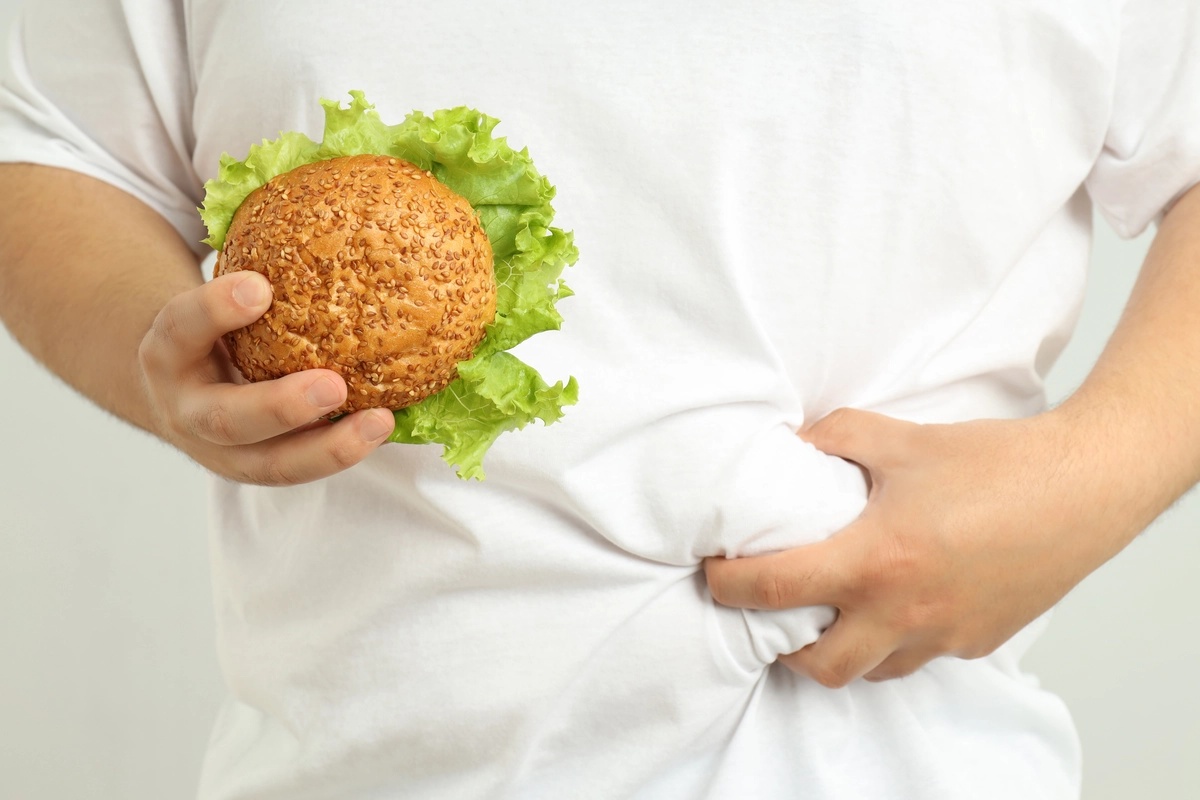Food Addiction: Symptoms, Causes, & Treatment Pathways


Food addiction is daunting to live with. From physical symptoms like weight gain and fatigue to the extreme emotional attachment to food, it's a compulsion that can disrupt daily life in more ways than one. However, many former food addicts have recovered through a combination of therapy, lifestyle changes, and mindful eating habits. Explore the symptoms, causes, and treatment options for food addiction, and call The Forge Recovery Center for professional support.
What Is Food Addiction?
Food addiction is a complex and often misunderstood condition characterized by a compulsive relationship with food. Similar to other forms of addiction, individuals with food addiction may experience cravings, loss of control, and continued consumption of food despite negative consequences. This can lead to overeating, binge eating, and feelings of guilt or shame. Food addiction can have serious implications for both physical and mental health, making it important to recognize the signs and seek appropriate support and treatment.
Signs of Food Addiction
Food addiction carries certain emotional, physical, and behavioral signs that could indicate that there’s an addiction at play. Here are the signs and symptoms to watch out for in yourself or someone you know:
Emotional Triggers
Certain situations and emotions can prompt overeating. Moments that drive stress, sadness, or anxiety can lead to compulsive eating episodes, and these triggers can create a cycle of emotional dependence on food.
To understand the psychological withdrawal symptoms associated with cutting down on certain foods, observe how you feel when trying to limit intake of trigger foods. Recognize feelings of irritability, restlessness, or intense cravings. These symptoms highlight the addictive nature of certain foods.
Considering the emotional impacts of food decisions on mental health is crucial. Reflect on how your food choices affect your mood and overall well-being, and try to notice if consuming certain foods leads to guilt, shame, or negative self-perception.
Physical Symptoms
Recognizing physical symptoms linked to food addiction is also crucial for early intervention. Pay attention to signs like bloating, fatigue, or headaches after overeating. These discomforts signal an imbalance in eating habits and could be withdrawal symptoms.
Understanding how overeating can make you feel ill is key. You may notice how excessive consumption affects your energy levels and digestion. Feeling sluggish or experiencing stomach issues after indulging, for example, may indicate a problem with food intake.
Learning about the potential physical consequences of compulsive overeating can motivate change. Consider the long-term effects on your health such as weight gain, heart issues, or diabetes risk, and remember that taking action to address these risks is the first step toward improving your overall well-being.
Behavioral Indicators
Identifying behavioral indicators related to food addiction involves observing patterns in daily life. Notice if you tend to avoid social gatherings that don't involve food or constantly think about your next meal. These behaviors may point towards a reliance on food for comfort.
Understanding how specific behaviors signal food addiction can let you know when to seek help. If you find yourself eating instead of dealing with emotions or using food as a coping mechanism during stressful times, it may be time to address these patterns, and seeking support from a mental health professional can aid in breaking these habits.
In identifying these behavioral indicators, try to reflect on how your eating habits affect productivity at work or interactions with loved ones. Addressing these challenges can lead to a healthier relationship with food and those around you.

Are You Struggling with Mental Health or Addiction?
We Can Help. Call Us Now!
CALL: 877-839-1772
Food Addiction Treatment Overview
Food addiction is typically treated with a combination of therapy, lifestyle changes, and mindful eating practice. Treatment centers are also fitting solutions, as they offer end-to-end care in a safe space, from therapy to support groups and more. Here’s a quick overview of the treatment options for food addiction:
Therapy
When addressing food addiction, therapy plays a crucial role. Therapy can help you delve into the underlying issues triggering compulsive overeating. Various therapeutic approaches, such as cognitive-behavioral therapy and dialectical behavior therapy, aid in overcoming food addiction.
Lifestyle Changes
Making lifestyle changes is vital in combating food addiction. By adopting healthier habits like meal planning and regular exercise, you can support your recovery journey from compulsive overeating. Diet modifications and physical activity are key components in managing food addiction effectively.
Mindfulness Practice
Engaging in mindfulness practices can heighten your awareness of eating behaviors associated with food addiction. Mindfulness techniques assist in breaking the cycle of compulsive overeating by promoting a deeper understanding of emotional triggers and responses. Embracing mindfulness fosters a healthier relationship with food by encouraging mindful eating habits.
Treatment Centers
Seeking professional help at specialized treatment centers for food addiction offers numerous benefits. These centers provide tailored care and support to address the complexities of food addiction effectively. Comprehensive treatment programs at these centers encompass various therapies, nutritional guidance, and mental health support to aid individuals in their recovery journey.
What Causes Food Addiction?
Psychological Factors
Psychological factors play a significant role in the development of food addiction. Emotional issues and mental health conditions can drive compulsive overeating behaviors. Addressing these factors is crucial in overcoming food addiction.
Your emotional well-being can heavily influence your relationship with food. Stress, trauma, and depression are common psychological triggers for overeating. These emotions can lead to seeking comfort in specific foods, perpetuating the cycle of food addiction.
Biological Triggers
Biological factors also contribute to food addiction. Your brain's reward pathway responds strongly to certain foods, especially those high in sugar, fat, and salt. This response can create a cycle of cravings and overconsumption.
Genetics and neurotransmitters play a crucial role in predisposing individuals to food addiction. Some people may be more genetically susceptible to developing addictive behaviors towards specific foods. Understanding these biological triggers is essential in managing and treating food addiction.
Are You Struggling with Mental Health or Addiction?
We Can Help. Call Us Now!
CALL: 877-839-1772
Effects of Food Addiction
Food addiction can result in serious consequences to your overall health, social capabilities, and mental health stability. Compulsive overeating increases your risk for obesity and diabetes, for example, and could make it challenging to enjoy meals in social settings without feelings of anxiety. Let’s explore these adverse effects further:
Health Consequences
When dealing with food addiction, you face severe health consequences. Compulsive overeating can lead to obesity, diabetes, and heart disease. These conditions significantly impact your overall well-being and quality of life.
In the long run, food addiction can result in various health issues. Obesity is a common outcome of compulsive overeating, leading to high blood pressure and cholesterol levels. Such health consequences can decrease your life expectancy.
Social Impact
Food addiction not only affects you physically but socially as well. It can strain your relationships and social interactions. You might find it challenging to enjoy meals or gatherings without feeling anxious about food choices.
Navigating social settings with food addiction can be tough. You may feel isolated or judged for your eating habits, impacting your self-esteem and comfort around others. Seeking social support from understanding friends and family members is crucial for overcoming these challenges.
Mental Health
Self-Esteem Issues
Your self-esteem takes a hit when battling food addiction. The constant struggle with overeating can negatively impact how you perceive yourself. Low self-esteem often fuels the cycle of compulsive eating behaviors, creating a challenging cycle to break.
To rebuild your self-esteem during recovery, focus on positive affirmations and self-care practices. Engage in activities that make you feel good about yourself and seek professional help if needed to address underlying emotional issues.
Relationship Strains
Food addiction can strain relationships with loved ones due to its effects on behavior and mood. Your preoccupation with food may cause misunderstandings or conflicts within your personal connections. Open communication and honesty are vital in maintaining healthy relationships despite these challenges.
Recognizing the impact of food addiction on your relationships is the first step towards addressing any strains that may have developed over time. By seeking support from those close to you and practicing effective communication, you can strengthen your bonds while focusing on your recovery journey.

Food Addiction Vs. Binge Eating
Despite their similarities, food addiction and binge eating are separate diagnoses. Here’s a summary of the key differences and how food addiction is specifically diagnosed:
Key Differences
When it comes to food addiction versus binge eating, it's crucial to recognize the disparities between occasional overeating and a full-blown addiction. Food addiction goes beyond mere enjoyment of food; it involves compulsive overeaters who struggle with controlling their eating habits.
Understanding the nuances between normal eating behaviors and compulsive overeating is essential. While occasional overeating may happen due to various reasons, addictive behaviors associated with food addiction are more intense and persistent.
To identify food addiction as a distinct disorder, specific criteria must be met. These criteria encompass a range of symptoms that characterize an individual's relationship with food, indicating a deeper issue than just enjoying a good meal.
Diagnostic Criteria
For healthcare professionals to diagnose food addiction, they rely on specific diagnostic criteria. These criteria involve assessing an individual's eating patterns, emotional connections to food, and the impact of these behaviors on their daily life.
The assessment process for determining if someone has a food addiction includes evaluating both physical and psychological aspects. This evaluation helps in understanding the severity of the addiction and tailoring appropriate treatment plans.
Healthcare professionals use standardized criteria to diagnose food addiction, ensuring consistency in identifying and treating individuals struggling with this disorder effectively.
Are You Struggling with Mental Health or Addiction?
We Can Help. Call Us Now!
CALL: 877-839-1772
Food Addiction Prevalence
Food addiction is worryingly prevalent, with studies reporting that up to 20% of the general population could be suffering from this condition. Below, we’ve gathered the latest data on food addiction to help you understand its impact on public health and the importance of raising awareness both in the U.S. and worldwide:
Public Health
Food addiction is a concerning issue prevalent in society, affecting a significant portion of the population. Research indicates that food addiction shares similarities with substance addictions like drug abuse.
Despite being a relatively new concept, food addiction has gained recognition for its widespread impact on public health. Studies have shown that individuals with food addiction often struggle with obesity and related health conditions.
Awareness
The awareness of food addiction as a serious problem has been steadily increasing in recent years. Health professionals are now more attuned to the signs and symptoms of food addiction, leading to improved diagnosis and treatment options.
Recognizing the parallels between food addiction and other forms of addiction is crucial in addressing this issue effectively. Educational campaigns and support groups play a vital role in raising awareness about the risks associated with food addiction.

Closing Thoughts
Now that you understand the complexities of food addiction, it's crucial to recognize the signs, seek appropriate treatment, and address the root causes. By differentiating between food addiction and binge eating, you can better navigate the path to recovery and break free from this cycle. Understanding the prevalence and effects of food addiction empowers you to make informed choices for your well-being.
Take charge of your health today by reaching out for support if you suspect you or a loved one is struggling with food addiction. Remember, seeking help is not a sign of weakness but a courageous step towards a healthier and happier life. Your journey to recovery starts with acknowledging the issue and taking proactive steps to overcome it.
Are You Struggling with Mental Health or Addiction?
We Can Help. Call Us Now!
CALL: 877-839-1772
Food Addiction Treatment in Orange County
At The Forge Recovery Center, we fully understand how the symptoms and effects of food addiction can diminish your quality of life. However, the health risks if left untreated could be dire, posing heightened risks for obesity, diabetes, and heart issues — highlighting the need for treatment. Our team of mental health experts is ready for you, equipped with a set of proven therapies to guide you toward a lifestyle free from compulsive eating habits.
See our treatment modalities below, and contact The Forge Recovery Center today if you or a loved one require professional help to overcome your food addiction.



